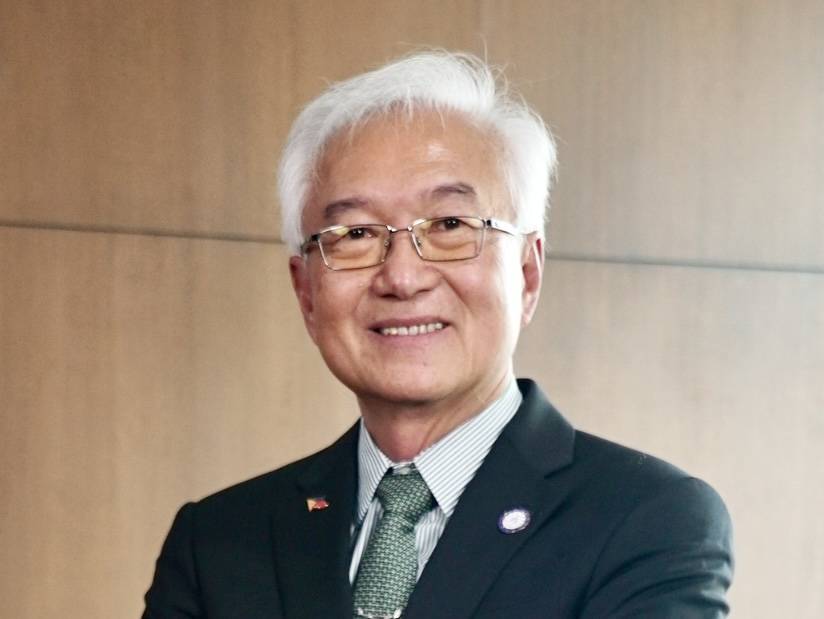How traditional Chinese values benefit business

Businessman Samuel Uy is the president of the Chinese Filipino Business Club Inc. (CFBC) and also serves as the president of Ford Tractor Philippines. In this interview, he explores the various dimensions of how Chinese-Filipino (Chinoy) culture impacts business behavior, the differences between generations and backgrounds, and approaches to conflict resolution.
Question: In what ways do traditional Chinese values manifest in the strategic decisions and day-to-day operations of Chinoy businesses?
Answer: Traditional Chinese values play a significant role in how Chinoy businesses are managed and major decisions made. For me, I could say these values were inculcated during our growing-up years. More than just telling me, I should thank my parents for showing me these important values. The most basic is the respect and learning from the mentorship of our elders. My filial spirit gives me the opportunity to look into the pool of vast experiences and knowledge of the elder people. Other values such as trust, loyalty and dedication would follow. These values were carried forward to all our undertakings in education, businesses or career. When making important decisions, our values serve as a guiding light in our journey through our chosen field of endeavors.
Q: How important are family ties and family associations in the business strategies of Chinoy entrepreneurs?
A: Maintaining good family relationships is important as this is where we source our need for love and belonging; [where] our values, guidance and encouragement come from. Through our strengths and weaknesses, our ups and downs in life, the family is there to encourage us and cheer us on. In business, we treat our family as our solace and refuge during times of trial. As a Chinoy, I would say that joining the family association expands our business connections. In this venue, we can expose ourselves to more business opportunities and learn from seasoned entrepreneurs in their respective lines of businesses. It is definitely beneficial to entrepreneurs like me to expand our networks and receive guidance as we navigate through business challenges.
Q: Are there noticeable differences in business values and practices between Chinoy entrepreneurs who were born locally and those who migrated from mainland China?
A: Yes, there is a noticeable difference in business values and practices. If we were hardworking when we started our businesses in the country, I could say that those who migrated from mainland China were even more diligent and hardworking. Our locally born Chinoys have a pampered life as many parents tend to be protective of their children. Some have been exposed to the family business at their young age, which is good for them. Generally, they work 8 a.m. to 5 p.m. only. You will be lucky if they report for work from Monday to Friday. They know how to enjoy what they call work and life balance.
How about those who migrated from China? They are eager to exceed their capacity and to succeed in their chosen line of business. They do not have that 8-to-5 work attitude. They are up early and they can work up to late night if needed. They don’t perceive language as a hindrance and they will do anything to make sure they perform excellently in business.
Q: What cultural or value-based challenges arise when mainland-born and local-born Chinoy entrepreneurs collaborate or compete?
A: The Philippine market is massive for every businessman. Ideally, it will be nice if the local-born Chinoy and the mainland-born Chinese can collaborate to be able to help the economy and uplift the lives of the poor. However, it’s easier said than done. Business is business and everyone will do creative things or better marketing to have a bigger share of the market. The locals observe some business etiquette and enjoy the advantages of maintaining some good local relationships. I could say this advantage will be short-lived as the mainland-born Chinese will be able to adapt quickly too. The best thing the local-born Chinoys can do is to make their business foundation solid so it can withstand the entry of the mainland-born Chinese.
Q: What challenges and opportunities do younger Chinoy business owners face that differ from those of their elders?
A: Young Chinoy entrepreneurs will be competing against traditional, more massive and established businesses when they will start a new business. Nevertheless, lucky are those who will be given the opportunity to continue and expand the business some more. Being more exposed to the digital and e-commerce [space], coupled with the guidance from their parents, they will have a better chance of maintaining the market share or expanding the market depending on their aggressiveness and dedication.
Q: The Chinoy community has long relied on strong networking and mentorship systems. How do you see these relationships evolving as younger generations take on leadership roles?
A: The younger Chinoy generation will still count on their family and family associations for networking and mentorship. In addition to the face to face interactions, the young Chinoys will also benefit from global networks and virtual cooperations. Today, the options to networking are more diverse and dynamic, which include social media and other digital collaboration with foreign business partners.
Q: Chinoy entrepreneurs often face certain stereotypes. What do you think are some of the biggest misconceptions about Chinoy business owners, and how can these be addressed or overcome?
A: The biggest misconception about the Chinoy business owners is that they are only focusing on making money and that they don’t do enough CSR (corporate social responsibility) initiatives to help the poor in our country. But, the truth is that many Chinoy entrepreneurs are involved in community projects through their philanthropic donations. Another stereotype is that Chinoy entrepreneurs are selling cheap but inferior China products. That is not accurate. The truth is that the option to buy good quality or low quality products is a decision of the consumers. Like in our case, we sell agricultural machineries with quality at par or even better than the known brands in the local market. We are proud that we can offer quality items at reasonable prices.
Now the important question is, how can we change this mindset? We are addressing this misconception or misinformation by tapping the social media and the print media to inform and educate the consumers about our projects. Just early this year, the Filipino at Tsino Magkaibigan Foundation was organized to conduct more relief operations to help our calamity-stricken Filipino brothers and sisters.
Chinoys are used to being very humble and silent, but now, we encourage them to let the rest of the community know that we are also doing our part. We are now collaborating with national newspapers so our Filipino brethren can see our collaborations with the government to uplift our disadvantaged kababayans.
Q: Are there specific cultural practices or traditional methods used to mediate and resolve disputes within the Chinoy business community?
A: We usually use peaceful mediation rather than confrontation in resolving disputes. Family association’s elders or respected community leaders are called forward to help resolve disputes, offer a fair and reasonable solution to both parties, preserving the respect between the parties during the negotiation. Traditionally, the elders will select a neutral ground for both parties to meet and dialogue. It could be an informal meeting to have tea, coffee or a simple meal. By hearing the side of each party, they offer a solution that is mutually acceptable and beneficial; that way, both parties are able to save face and get back to their cordial relationships.
Q: How do organizations like the CFBC play a role in fostering collaboration among Chinoy entrepreneurs? Can you speak about any key initiatives or projects that have helped local businesses thrive?
A: At CFBCI, we practice what we call ‘business sharing’ during our monthly plenary meetings. Through this, our members enjoy the opportunity to talk more about their respective businesses to inform their fellow members and hopefully foster future collaborations.
Since we have many projects with the government, we give our members the opportunity to supply the products needed for donation projects. Even among members, there’s networking to help promote or introduce the products among friends and acquaintances. Through trade fairs, networking opportunities and other initiatives, CFBCI helps members with best business practices and network expansion while guiding them through their challenges.
We have our Young Entrepreneurs Committee under the leadership of one of our vice presidents. Quarterly, we will have a half-day business seminar to allow the young entrepreneurs to learn from professional speakers discussing different aspects of the business world to motivate them as they grow their business.
Finally, I am proud to share that CFBCI is an active member of the CICAC (Customs Industry Consultative and Advisory Council). Maintaining a good relationship with the Bureau of Customs is highly beneficial for our members, especially in addressing their custom-related concerns. We are very grateful to the excellent assistance given by the bureau and in return, we maintain our compliance with their requirements and encourage our members to do so.
Josiah Go is chair and chief innovation strategist of Mansmith and Fielders Inc. He is also cofounder of the Mansmith Innovation Awards. To ask Mansmith Innovation team to help challenge assumptions in your industries, email info@mansmith.net.





















